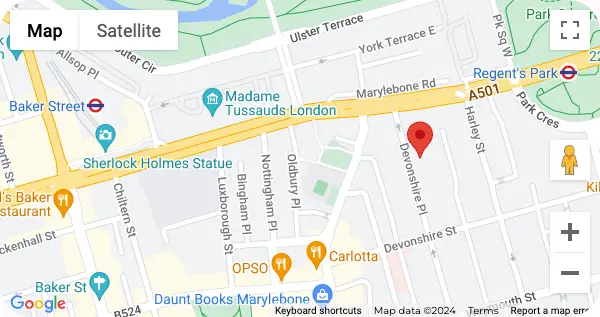Summary
- This article covers 7 possible long-term risks of using Ozempic.
- Research on the safety of using Ozempic remains limited.
- Should you experience sudden stomach pain, problems with your vision, or severe vomiting, consult your doctor immediately.
- What you can do to protect yourself is to have regular check-ups at the NHS, eat a healthy diet, stay hydrated, and watch for any unusual symptoms.
Understanding Ozempic and Its Long-Term Use
Semaglutide, with the brand name Ozempic, is a GLP-1 receptor agonist. It mimics a natural hormone of our body that stimulates the release of insulin, slows digestion, and reduces appetite.
Ozempic was originally approved for the treatment of diabetes, but its off-label use in weight management has gained popularity in the UK. The MHRA and EMA have granted the drug a licence, but the trials (such as STEP studies) for evaluating its long-term outcomes are still ongoing.
Although there is a good impression with its short-term use, there is still limited clinical research for its safety in long-term use.
The 7 Long-Term Side Effects to Watch
Thyroid Tumour Risk (Rodent Data vs. Human Evidence)
Studies of Ozempic on animals have become one of the biggest concerns, where some rats develop C-cell thyroid tumours after the drugs are used on them. Because of this, the FDA issued a black box warning on its label.
But in humans, studies have not found any strong proof that Ozempic can cause thyroid cancer. The UK and Europe have agreed that there’s no confirmed link between Ozempic and thyroid cancer in humans after they have reviewed the data.
The doctors are still taking extra care. They don’t usually recommend Ozempic to those individuals who have a personal or family history of medullary thyroid carcinoma or MEN2 syndrome.
Signs that you need to watch out:
- Your neck is swelling or has a lump
- There is a hoarseness on your voice or sore throat that does not go away.
- You have difficulty in swallowing
If you experience these signs, you need to consult your doctor right away.
Pancreatitis & Gallbladder Disease
If you are using Ozempic for a long time, you are at risk of having pancreatitis (inflammation of the pancreas) and gallbladder problems (particularly gallstones). It is because gallstones can trigger its formation when you lose weight quickly. Also these organs might carry extra strain because of the drugs’ effect on your digestion and bile flow.
Warning signs:
- You have sudden, severe upper abdominal pain that usually goes to your back.
- You’re experiencing nausea and vomiting
- You have fever and your skin is yellowing
Seek an urgent medical attention if these appear.
Diabetic Retinopathy Progression
If you have diabetes, Ozempic can manage your blood sugar significantly. But the improvement sometimes can happen too quickly. This can temporarily worsen diabetic retinopathy (a complication affecting the small blood vessels in your eyes).
If there’s a rapid drop in a person’s glucose level, it may cause them vision changes, floaters, or blurry sight in the first month of their treatment. Most cases stabilise with time, but if you have pre-existing eye disease, you should have regular retinal check ups with your doctor.
Kidney Injury & Severe Dehydration
Persistent nausea, vomiting, or diarrhoea can make individuals dehydrated, which can stress their kidneys. People with chronic kidney disease (CKD) and elderly who use the drugs are at high risk.
To help reduce the risks:
- Stay hydrated
- Have a regular kidney function check up (eGFR, creatinine)
- If you are experiencing swelling in the legs or reduced urination, let your doctor know about it.
GI Symptoms That Persist
Most users of Ozempic are experiencing gastrointestinal (GI) side effects such as nausea, bloating, or constipation, in their early weeks of using it. For some, it may fade after a few weeks, but for some, the symptoms they experience take longer.
To those experiencing chronic GI discomfort, their nutrition, sleep, and social life can be affected, especially when the loss of their appetite continues. Patients who have a persisting condition should ask their doctor for dosing adjustments..
Your doctor may do the following:
- Switch the timing of your injection
- Reduce the portion size
- Lower your dose temporarily
Effective & professional doctor-led Ozempic at our central London clinic
Verified Before & After
Verified Before & After
Muscle Loss (Sarcopenia)
Muscle mass reduction is one of the Ozempic-related weight loss side effects. Because the drug can reduce fat significantly, users can also lose lean tissues if they don’t eat enough protein-rich food and do not engage in resistance exercises.
The condition is also known as sarcopenia where it can lead to strength reduction, slower metabolism, and increased fatigue to people who use semaglutide.
Prevention tips:
- Include protein rich food in your diet (fish, eggs, lean meat, legumes).
- Do weight bearing or resistance exercises.
- Ask for a nutrition plan from your healthcare provider.
Psychological Effects & Medication Dependence
Ozempic can really help many people, but the physical changes made by the drugs can make them emotional.
Some people have anxiety when they start regaining weight and feel low after they stop using Ozempic, while some depend on the medication for their self-image.
These psychological effects does not mean that using Ozempic is not safe, it is just a reminder of how important mental health support is during the process.
To help the patients:
- Talk to your healthcare provider about how you feel.
- Ask for support or counselling during your weight management process.
- Avoid sudden stop of using Ozempic, it should be gradual and guided by your doctor.
Balancing Risks vs. Benefits
So, are these side effects means that Ozempic is not safe to use for the long term? Not necessarily. Ozempic is still considered as highly effective treatments for both diabetes and obesity. Most UK specialists agreed that for most people who have these conditions, the benefits they get are more important than thinking of the risks.
The STEP trial data shows that the strong efficacy of the drugs will last up to two years. However, the key is self monitoring. What is safe for some people might not be good for others, particularly to those who use the drug for long periods. To help you stay safe, you need to have regular reviews with your doctor.
When to Seek Medical Advice
Ozempic is one of the best ways to help people manage their diabetes or obesity. But you should always be vigilant on what your body is telling you while using the drugs. You need to consult your doctor or the NHS if you have any of these symptoms:
- You have severe abdominal pain or vomiting, together with back pain.
- Your eyes and skin is turning yellow
- There’s changes in your vision.
- Reduction on your urination
- It’s difficult for you to swallow and your neck is swelling.
You can also report your condition through the MHRA yellow card scheme, which tracks medicine safety across the UK.
Long-Term Monitoring & Mitigation
If you keep on tracking your health regularly, using Ozempic for long periods can be safe and effective for you. Your doctor may be able to spot any early signs of side effects if you have routine monitoring and it will help check if the treatment is still working well for you. It’s also a good way to keep your overall health check, especially if you’re using Ozempic to lose weight or manage diabetes. You can prevent complications if you do some simple habits like eating well, exercising, and getting regular check ups.
Here’s how you can use Ozempic safely for the long-term while protecting your health.
- Have your thyroid and kidney function test annually.
- If you are diabetic, schedule a regular eye exam.
- Eat a balanced and high protein diet.
- Include exercise – particularly strength training.
- Review your treatment plan every 6-12 months with your doctor.
Final Takeaway: Using Ozempic Safely in the UK
Ozempic is one of the most effective medications that can be used to manage diabetes and support weight loss – but it’s accompanied with some risks.
Awareness, monitoring, and lifestyle balance is your key to use them safely in the long-term. Most people stay safe and enjoy the benefits for years by using the drug correctly with their doctor’s supervision.
You can have the Ozempic long-term benefits and can minimise its risks by staying informed, maintaining open communication with your GP and following a balanced lifestyle.
FAQS
- Is Ozempic safe for long-term use?
Ozempic is generally safe to use for up to 2 years, as per the current data. The studies about its safety beyond that are still ongoing. So it is still best to use the medication under your doctor supervison and tell them everything about how your body reacts with it.
- What are the most common long-term side effects of Ozempic?
If you are using Ozempic for a long term it may lead to different problems in your body, like thyroid and gallbladder issues, pancreatitis, retinopathy progression, kidney stress, persistent GI symptoms, muscle loss, and psychological effects.
- Can Ozempic cause thyroid cancer in humans?
Although there is thyroid cancer developed in rodents while using the drugs, there’s no proven evidence linked in humans. However, people with thyroid conditions should be cautious when taking Ozempic.
- How does Ozempic affect kidneys or gallbladder?
People who use the medication can make their body dehydrated and lose weight rapidly, which makes these organs stressed. To minimise these risks, they need to stay hydrated and get blood tests regularly.
- What long-term monitoring should I have if on Ozempic?
If you are using Ozempic, it may help you get the full benefits and stay safe if you have annual thyroid and kidney checks, eye exams if you are diabetic, and have your dose reviewed by your GP periodically.
Reserve an ozempic appointment
One of our experts will be more than happy to answer any questions you have.
Book AppointmentFazia Gomes
★★★★★
Great experience with Dr Omar!!!. Very professional, explained everything clearly. Clean clinic and very friendly staff. Highly recommend.
3rd February 2026
Arian Nik
★★★★★
Rosa was amazing and thank you so much to Paula for looking after me x
3rd February 2026
Esther Winklehner
★★★★★
As someone who has struggled with acne for years, coming into Harley Street Skin has been an amazing experience. So professional and so helpful!
5th February 2026












